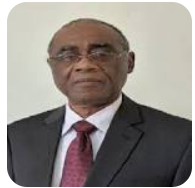WASHINGTON D.C. – Growing frustration over systemic corruption, rampant youth unemployment, and unacceptable levels of poverty across West African nations are fueling intense discussions in Washington D.C., according to sources familiar with ongoing diplomatic and policy dialogues. International organizations and US policymakers are increasingly concerned about the widening gap between the affluent elite and struggling populations, particularly in light of perceived inequalities like high legislative salaries within these nations.
The concerns were amplified during a recent forum hosted by the Center for Strategic and International Studies (CSIS), where experts and former government officials highlighted the urgency of addressing these interwoven challenges to prevent further instability and social unrest in the region.
“While West Africa boasts immense potential and significant natural resources, corruption acts as a major impediment to progress,” stated Dr. Aisha Bakare, a West Africa specialist at CSIS. “It diverts crucial funds away from essential services like education and healthcare, exacerbating poverty and fueling distrust in governance.”
Youth unemployment remains a particularly pressing concern. With booming populations and limited job opportunities, millions of young Africans are left feeling disenfranchised, making them vulnerable to recruitment by extremist groups or forced migration.
“We see a generation of young people brimming with potential, but lacking the opportunities to thrive,” explained Ambassador Mark Johnson, a former US envoy to the region. “This isn’t just an economic issue; it’s a security issue. We need to invest in skills development, entrepreneurship, and creating sustainable jobs.”
The stark contrast between widespread poverty and the opulent lifestyles of some government officials and legislators has drawn sharp criticism. The perception of exorbitant salaries and benefits enjoyed by lawmakers while many citizens struggle to afford basic necessities is fueling public anger and protests in several countries.
“The optics are terrible,” admitted a senior State Department official who requested anonymity. “High salaries for legislators, particularly in countries grappling with poverty, undermine public trust and perception of fairness. It sends the wrong message about priorities.”
Discussions in Washington D.C. have centered around potential solutions, including:
- Strengthening anti-corruption measures:┬ĀEmphasizing transparency, accountability, and independent oversight bodies to combat corruption at all levels of government.
- Investing in education and vocational training:┬ĀEquipping young people with the skills needed to succeed in the modern workforce.
- Promoting entrepreneurship and small business development:┬ĀCreating an environment that fosters innovation and job creation.
- Encouraging good governance and responsible resource management:┬ĀEnsuring that natural resources benefit all citizens, not just a select few.
- Addressing income inequality and promoting more equitable distribution of wealth:┬ĀFocusing on policies that reduce poverty and promote social justice.
While US and international support is vital, experts emphasize that ultimately, the responsibility for addressing these challenges lies with West African nations themselves. A commitment to good governance, transparency, and inclusive economic development is crucial for building a more prosperous and stable future for the region.
The situation remains complex and dynamic, but the renewed focus in Washington D.C. signals a growing awareness of the urgency and scale of the challenges facing West Africa. Whether this heightened attention translates into meaningful change remains to be seen.









